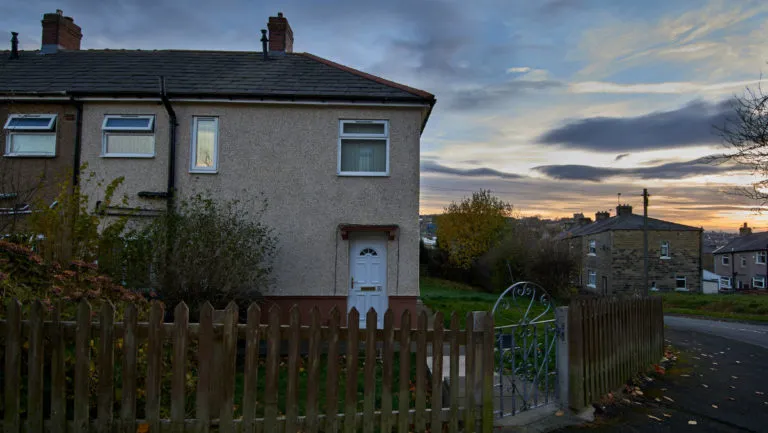The national housing emergency and the Liberal Democrats
Published: by Robin White

On 12 December, the United Kingdom will go to the polls in a general election for the third time in four years. One thing, however, is abundantly clear – that whoever the next government is they will need to take radical steps to tackle our national housing emergency.
For the 1.1 million households on council waiting lists, the 277,000 people who are homeless in England, and the millions of families trapped in insecure private rentals, action can’t come soon enough.
To help us understand more about what each of the parties would do about this, Shelter will join with eight other organisations from across the housing and homelessness sectors to host a National Housing Hustings. This will take place on 4 December and will include representatives from across England’s major political parties – you can follow all the action on social media using #housinghustings.
This will be an opportunity for those who are experiencing the housing emergency to engage in the debate and hear the detail of what they would do over the next parliament.
Ahead of the hustings, Shelter has produced short summaries of each party manifesto to highlight some of the key things we already know about their plans to tackle the housing emergency. Having kicked off this series with the Green Party, we’re now moving on to look at the Liberal Democrats and their manifesto: Stop Brexit: Build a Brighter Future.
The Liberal Democrats and housebuilding
In recent years, the calls for more focus on social housebuilding have grown. Clearly the Liberal Democrats have been paying attention. At the heart of their plan for housing is the delivery of at least 100,000 new social homes a year over the course of the next parliament. These will be essential to reach an overall target of 300,000 new homes per year.
Shelter, alongside organisations including Crisis, Homeless Link and Centrepoint, have said that at least 90,000 social homes per year are needed. This is then a first step to achieving the 3 million more homes that Shelter’s Independent Social Housing Commission identified as being needed over the next 20 years.
The manifesto identifies a £130 billion capital infrastructure fund as a main source of funding for these homes, though there will still be questions about capacity within the industry to deliver these homes.
On top of their social housebuilding pledges the Liberal Democrats have also promised to:
- devolve full control of Right to Buy to councils
- build new homes to zero-carbon standards
- introduce a new Rent to Own product in social housing
Of these proposals it is perhaps Rent to Own where additional detail is needed. Will tenants be required to put down a deposit for the scheme? Will these homes be seen as a new tenure or included in the overall 100,000 social homes per year?
The Liberal Democrats and private renting
At their conference this year Liberal Democrat members voted overwhelmingly for the Party to adopt ending Section 21 ‘no-fault’ evictions as party policy. Shelter and others welcomed this move and the wider trend across all parties to committing to making this type of practice a thing of the past.
In their manifesto the Liberal Democrats have not repeated this pledge but have committed to the introduction of minimum three-year fixed term tenancies. Elsewhere they have confirmed that the commitment to end Section 21 does remain party policy.
Away from evictions and tenancy periods the Liberal Democrats have also made a couple of other key promises to improve renting:
- develop a new government-backed tenancy deposit scheme for young renters
- improve protections against rogue landlords through mandatory licensing
The Liberal Democrats and welfare
Across almost the whole of England, housing benefit in the form of Local Housing Allowance (LHA) no longer covers the cost of renting.
In light of that it’s encouraging that the Liberal Democrats have committed to raising the level of LHA in line with ‘average’ local rents. However, what we now need is more clarity on the detail of this commitment – we at Shelter have said a realignment with the bottom 30% of market rents.
Within the manifesto a number of other promises are made for those in housing need including:
- exempting homeless people and those at risk of homelessness from the LHA shared accommodation rate
- the removal of the benefit cap, which currently leaves some families with as little as 50p a year to cover their housing costs
- the abolition of the bedroom tax
- the end of the 5-week wait for Universal Credit
The National Housing Hustings
On Wednesday 4 December, we will have the opportunity to find out more about how these pledges would be delivered at the National Housing Hustings hosted by Centrepoint, Crisis, CPRE, Homeless Link, National Housing Federation, RIBA, RICS, Shelter, and St Mungo’s.
Housing spokespeople have been invited from the Conservative, Green, Liberal Democrats and Labour parties – the four parties that had an MP elected in England at the last General Election.
Questions will come from people who have experienced the housing emergency first-hand, including those trapped in private renting, waiting for a social home, and those who have seen the reality of homelessness.
If you’re interested in housing and want to make your voice heard at this election, you can email your prospective parliamentary candidates to ask them to commit to ending the housing emergency.